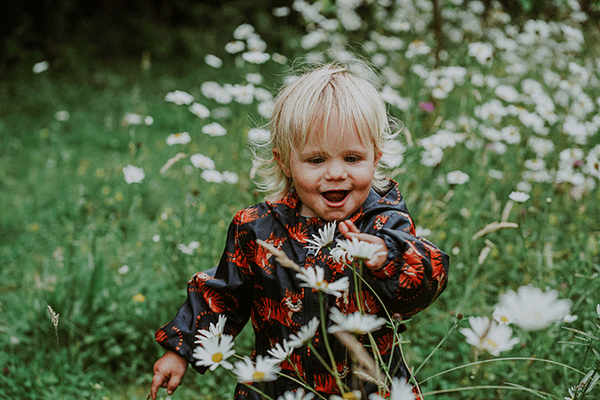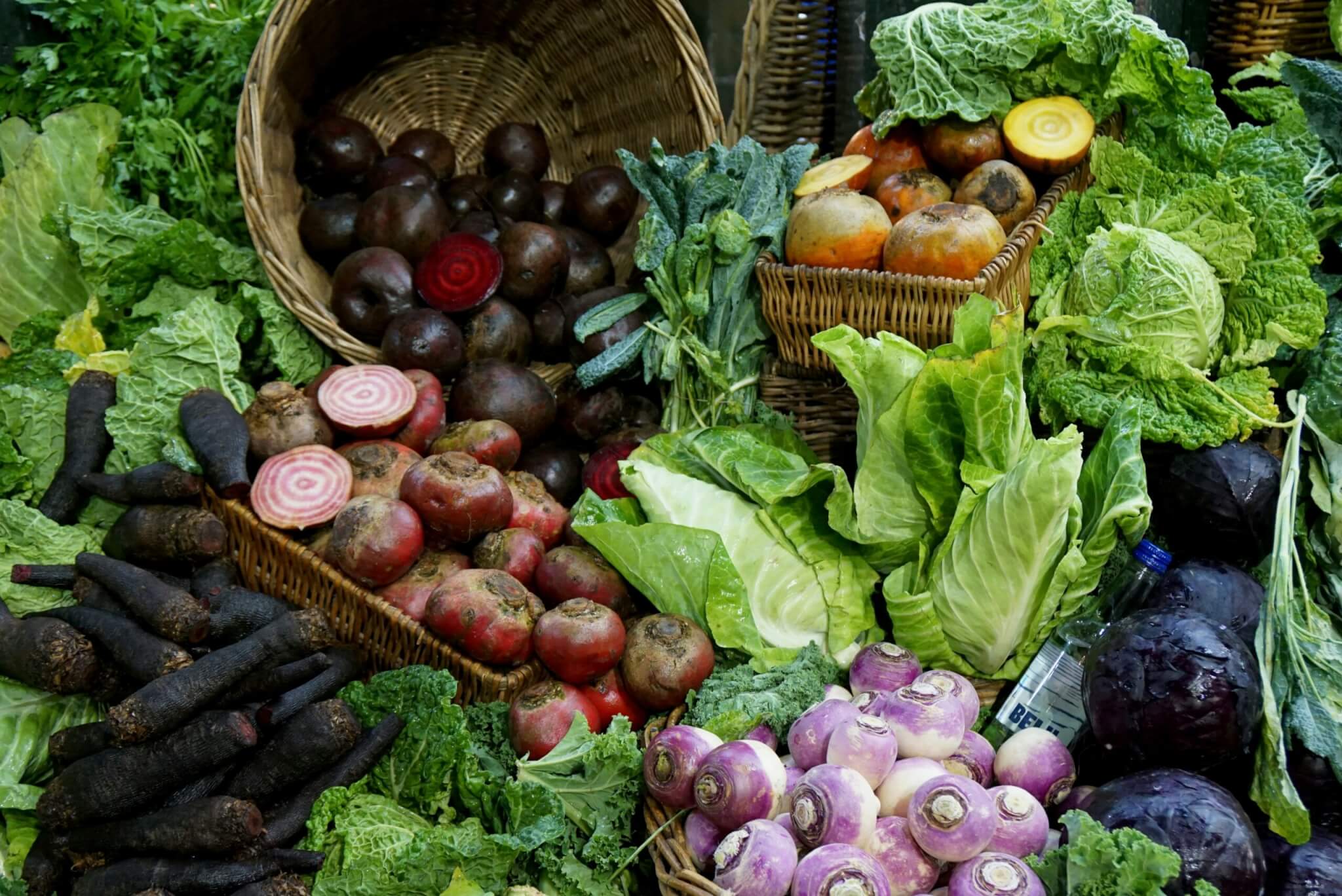Over 40 organisations, teachers, MPs and three quarters of the public have backed a campaign to improve children’s mental health with better access to nature.
Successive lockdowns, social isolation and increased use of social media is driving a mental health crisis among children but regular time in nature can help tackle these issues, according to the Nature Premium campaign.
The campaign, which came out of conversations led by the Forest School Association, wants the government to fund better access to nature for children, particularly those in urban or disadvantaged areas, to be spent on things like tree growing, community gardening, walks in nature, and ‘forest school’.
Its proposals have been backed by the public after a survey found that 74 per cent of 2,000 participants felt that greater access to nature is important for children’s physical and mental wellbeing.
Two thirds of those asked also thought that giving children a closer relationship with the outdoors could encourage them to lead sustainable lives when they are older.
“The fact that mental health for adults and children improves in nature is well documented,” said headteacher Bridget Knight, from Eardisley primary school in Herefordshire. “It is also well known that increasingly as a society we are remote from and disengaged from nature. So, a big refocus and spotlight on nature-led learning is a good thing.”
It comes after a recent government report revealed a deepening mental health crisis among children due to the lockdown, while The Children’s Society reported that young people are 50 per cent more likely to suffer from a mental health issues.
Spending time in nature could be part of the solution, as research from Natural England found that 83 per cent of children were happier after spending time in natural environments and the Mental Health Foundation found that a close relationship with nature is strongly linked to wellbeing.
The campaign also emphasises that more funding should be provided for schools with less access to nature, to reduce the stark inequalities of schools in urban and deprived areas.

“There is a clear disparity in access to nature for children and young people in the UK, which has only been made worse by lockdown,” said primary school teacher, Edd Moore. “The government must ensure all children have equal opportunities to get into nature, regardless of where their school is, where they live, or their family’s income.”
Green Party MP Caroline Lucas said: “There is a real danger that many of the next generation will grow up unable to recognise the wildlife on our doorsteps until it is gone. So there is no doubt in my mind that a Nature Premium, and ensuring the next generation grows up knowing, understanding and loving the natural world, is vital.”
It’s not the only campaign to improve children’s access to nature; schools in Cardiff will see ‘edible playgrounds’ installed as part of a city-wide scheme to boost a connection to healthy eating and nature.












Thanks, Jack, this is a great piece. It seems we must all be a bit mentally damaged that we actually need to spell this out, yet that’s the way it is. Our society puts no actual value on nature. As though it’s just a nice-to-have, when things get tough, nature is the one of the first things to suffer. I’m glad we’re beginning to get proof otherwise now.
I qualified as teacher in 1976 and spent my time working with children with emotional and behavioural problems so much of what we did with these children was outdoors be it walking in nature, climbing mountains or gardening I could see the benefits the children were getting. When I retired my local primary school employed me to work with some vulnerable children by doing activities in its small wood in its grounds. It was so successful every year 6 pupil gets 6 weeks in the woods and they love it. It’s great it’s becoming more common in schools at long last.
What a great initiative and so essential – great to hear that you have seen the benefits first hand.
So what changed? When I was a kid, albeit with direct access to countryside by living in a village – falling in the cut, being miles away from home with a badly cut finger that forever stained the white bar grips on me bike, riding said bike to school and home in the dark, angling licence for the Staffs and Worcs and constant footie down the field all year round…what happened?
Then ours, brought up in Quaker environment and free to roam, no mobile phones at least until secondary school…the young ‘un out in the fields from breakfast to tea-time, not a clue where he was, just knowing that folk in the village had an eye open for all of the kids and we’d soon know if things were awry.
All of them could be called in by my whistle through the fingers that Grandad taught me…the loudest one there is…..so much so that when I tried it from one end of Peckham High Street to the other on the Big Fella ( at the age of 25) his head came up and he was looking for me like he was 13 all over again.!!!
Privileged?? No…just lucky. All hated school, so is it a school problem? How they would have coped in an inner-city environment? Probably not at all , even tho’ the 2 big ones have thrived in London as grown-ups.
And the lives of youngsters, particularly in those urban areas can only get worse as parents find themselves so clearly having to choose between ‘freeze’ or ‘food’…it is structural and that is how it needs to be dealt with. When kids have to be fed breakfast by teachers, when the matrix can only work by comparison of kids on free school dinners, when families exist off food/clothes banks, it is a desperate and soul destroying place to be – when our leaders do stuff like this…look up Liz Truss and 5 Hertford St.
Rant over….
This is heart-breaking, particularly because it is so predictable. when I set up a Forest School back in 2013, it was because there was a growing need to connect children and nature. Now, rather than improving, it just seems to have got worse!
And the pandemic has exacerbated that trend. It could have been a turning point moment to launch Forest Schools big time – taking children to the fresh outdoors for learning thorugh nature. But instead they were sat donw with computers at home to do their learning. How short-sighted!
What channels for progress have we failed to set up, that every positive change we wish to make is an unsurmountable hurdle??
A really good point Liz about the missed opportunity around access to nature for children during and after lockdowns – those without gardens having so little time outdoors. We hope this campaign will trigger a real sea-change in understanding and more provision for children’s access to nature.
Nature walks in junior school, two by two, teachers front and rear, stops to identify items – and a nature table for the class and individual offerings, which were all labelled so that names were absorbed as we passed by. There were large posters offered by Shell to assist us. This was carried on at senior school by having inter-house wildflower competitions – each ‘house’ having a lab in which to display the items. Again they were all labelled, and identification books were provided. How many parents and teachers have the knowledge to be able to take children on a nature walk these days? How many walks in the countryside are mere route marches with few stops to wonder at the plants around them?
On a personal level, choice of a penny busfare or a walk to school (chose the latter), paddling in streams, catching sticklebacks, pulling off the odd leech – finding a sloughed snakeskin, a white stoat and seeing a hawk moth in all its glory and multicoloured caterpillars. Walking to the park, walking to Brownies, walking with Brownies and parents, who were knowledgeable about the natural world. A privileged childhood perhaps, so why has it been lost? Pressures on parents and dare I say it – Technology?
It would be difficult to go backwards. How does one engender curiosity and wonder?
All small day-to-day acts of connecting with nature that were taken for granted, whereas we are only just realising how detrimental their loss is to young peoples mental health. Time for change.